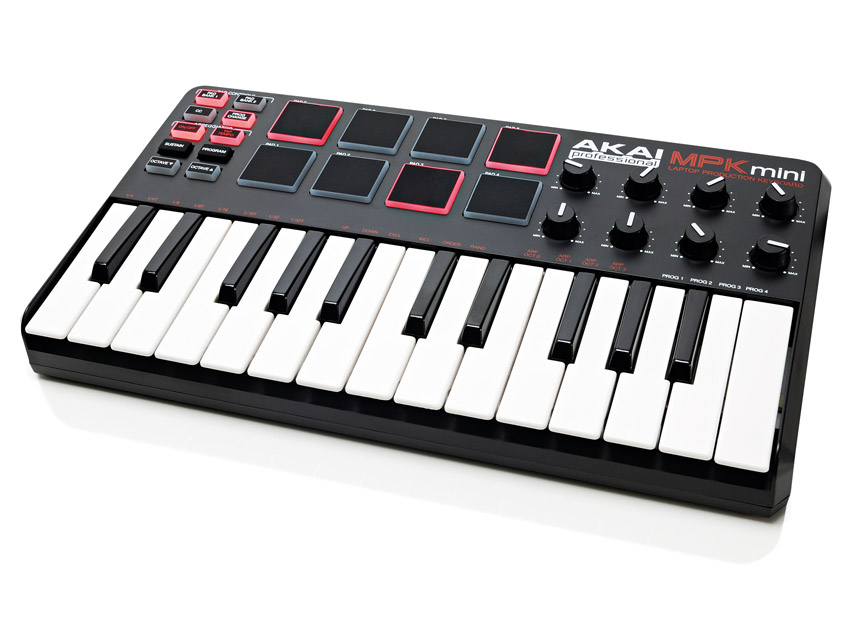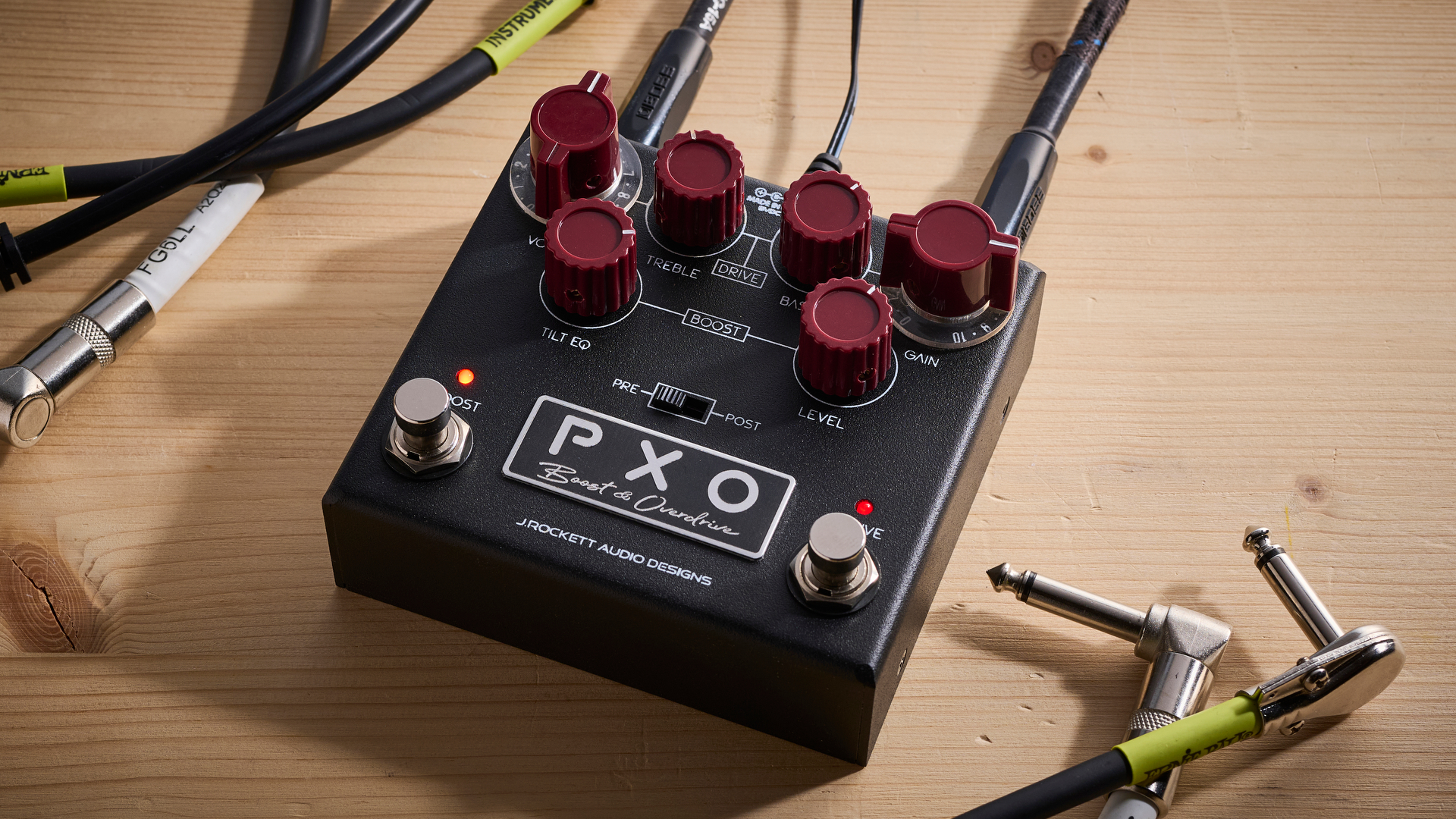MusicRadar Verdict
Even better value than buying two separate controllers, the MPK Mini proves a great portable option.
Pros
- +
25-key semi-weighted keyboard with arpeggiator. Eight velocity-sensitive pads and eight rotary pots. £20 cheaper than buying LPK25 and LPD8 separately.
Cons
- -
No pitch or mod wheel. Rotary controls are fiddly.
MusicRadar's got your back
Back when we reviewed Akai's LPK25 keyboard and LPD8 pad controller, we rated them very highly and were impressed with the build quality.
Akai has now added to the range with the MPK Mini, a product that's effectively the result of grafting the LPK and LPD together to create a multi-purpose hybrid controller.
You may well wonder why Akai would introduce a bigger product to a range specifically designed for its portability, but this isn't simply a case of trying to plug every last gap in the market.
The MPK Mini isn't intended to replace the LPK or LPD, nor will it make you consign your full-size MIDI controller to the scrapheap. What it does is provide a neat solution if you want keys, pads and rotaries on the move. If you need a bit of everything, it makes a lot of sense to carry one unit rather than two, saving a USB port and taking up less room in your bag.
Like its smaller counterparts, the MPK Mini is very easy to set up. Just plug it in via the supplied USB cable and everything should work straight away. The supplied editing software allows you to save and recall presets for parameters, including pad and knob mapping, MIDI channel selection and the arpeggiator options.
It's good to see that the MIDI channels for the two sections can be adjusted independently, making it easy to control a drum plug-in with the pads and a synth plug-in with the keys simultaneously.
Familiar feel
Anyone who's tried the LPK25 or LPD8 will be familiar with the layout and feel of the Mini. To all intents and purposes, it works almost identically to the other two units, with the obvious keyboard, pad and rotary functions supplemented by a useful - if slightly fiddly - arpeggiator and the handy Program Change and CC modes for the pads.
Although it's a portable controller, as with the rest of the range it's worth pointing out that the MPK Mini is at its best on a solid surface. Attempting to rest the unit on your knees is unlikely to be too successful, especially given the absence of adjustable velocity curves.
There are still no dedicated mod wheel or pitchbend controls, and we have our reservations about those fiddly little rotary pots, but even so it strikes a good overall balance between features and portability.
The MPK Mini might look like a good all-rounder, but it certainly won't replace your full-sized controller. Even something as compact as Akai's own MPK25 offers far more functionality.
What the Mini does very well is provide all of the basics in a convenient portable package, with build quality that should ensure that it stands a chance even if you just chuck it in your rucksack and hope for the best.
It's also good to see it's been priced very sensibly, working out at about £20 cheaper than the combined price of an LPD8 and an LPK25. Whether it's for writing music while travelling or as part of a bare-bones live setup, the MPK Mini offers a great-value solution.
Future Music is the number one magazine for today's producers. Packed with technique and technology we'll help you make great new music. All-access artist interviews, in-depth gear reviews, essential production tutorials and much more. Every marvellous monthly edition features reliable reviews of the latest and greatest hardware and software technology and techniques, unparalleled advice, in-depth interviews, sensational free samples and so much more to improve the experience and outcome of your music-making.
“I used everything I knew about music”: How Green Day exceeded expectations with their most ambitious song
YouTube just added AI tools that makes musicians, library music and video editors redundant
“Every one of them said yes without hesitation": Hank Marvin and Roger Taylor have just remade a '60s classic for charity











